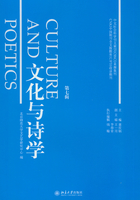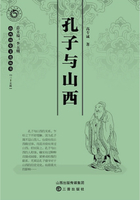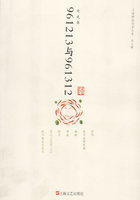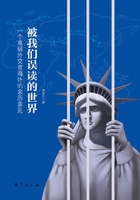The example of Portugal and France was soon followed by Spain. Charles III. (1759-1788) was an able ruler, anxious to restore the former greatness of his country by encouraging the establishment of industries and by favouring the introduction of foreign capital and foreign skill. He was by no means irreligious, but he was influenced largely by the liberal tendencies of the age, as were also in a more marked degree his two principal ministers Aranda and de Roda. Popular feeling was aroused by the favour which the king showed towards French capitalists and artisans, and in some places ugly commotions took place. The ministers suggested to the king that the Jesuits were behind this movement, and were the authors of certain dangerous and inflammatory pamphlets. Secret councils were held, as a result of which sealed instructions were issued to the governors of all towns in which Jesuit houses were situated that on a fixed night the Jesuits should be arrested (1767). These orders were carried out to the letter. Close on six thousand Jesuits were taken and hurried to the coast, where vessels were waiting to transport them to the Papal States. When this had been accomplished a royal decree was issued suppressing the Society in Spain owing to certain weighty reasons which the king was unwilling to divulge. Clement XIII. remonstrated vigorously against such violent measures, but the only effect of his remonstrances was that the bishops who defended the papal interference were banished, those who would seek to favour the return of the Society were declared guilty of high treason, and the punishment of death was levelled against any Jesuit who attempted to land in Spain.
In Naples, where Ferdinand, son of Charles III. of Spain then ruled, the suppression of the Jesuits was planned and carried out by the prime minister, Tanucci, a man hardly less unfriendly to the Society than Pombal. The Jesuits were arrested without any trial, and were sent across the frontier into the Papal States (Nov. 1767). Much the same fate awaited them in the territories of the Duke of Parma and Piacenza, where the minister du Tillot had pursued for years a campaign against the rights of the Catholic Church. In 1768 Clement XIII. issued a strong protest against the policy of the Parmese government. This aroused the ire of the whole Bourbon family. France, Spain, and Naples demanded the withdrawal of this /Monitorium/ under threat of violence. The Papal States of Avignon and Venaissin were occupied by French troops, while Naples seized Benevento and Pontecorvo. Various attempts were made to secure the support of the Empress Maria Theresa, and to stir up opposition in the smaller kingdoms of Italy. But Clement XIII., undaunted by the threats of violence of the Bourbons, refused to yield to their demands for the suppression of a Society, against which nothing had been proved, and against which nothing could be proved except its ardent defence of the Catholic Church and its attachment to the Holy See. In January 1769 an ultimatum was presented by the ambassadors of France, Spain, and Naples demanding the suppression of the Society. The Pope refused to agree to it, but before the threats it contained could be carried into execution Clement XIII. passed away (Feb. 1769).
In the conclave that followed the Bourbon rulers made every effort to secure the election of a Pope favourable to their views. Their representatives were instructed to use the veto freely against all cardinals known to be favourable to the Jesuits. After a struggle lasting three months Cardinal Ganganelli was elected and took the title Clement XIV. (1769-1774). He restored friendly relations with Parma, opened negotiations with Portugal, created the brother of Pombal a cardinal, appointed Pereira, one of the court theologians, to a Portuguese bishopric, despatched a nuncio to Lisbon, and brought about a formal reconciliation (1770).
It is not true that before his election Clement XIV. had bound himself formally to suppress the Jesuits. Hardly, however, had he been crowned when demands were made upon him by the representatives of France and Spain similar to those presented to his predecessor. Clement XIV.
promised to agree to the suppression (1769), but asked for time to consider such a momentous step. In the hope of satisfying the opponents of the Jesuits the Pope adopted an unfriendly attitude towards the Society, and appointed apostolic visitors to examine into the affairs of the seminaries and colleges under its control, from most of which, as a result of the investigation, the Jesuits were dismissed. He offered to bring about a complete change in the constitution of the Society, but this offer, too, was rejected.
Charles III. of Spain forwarded an ultimatum in which he insisted upon the instant suppression of the Society under threat of recalling his ambassador from Rome. This ultimatum had the approval of all the Bourbon rulers. Faced with such a terrible danger, the courage of Clement XIV. failed him, and he determined to accept the suppression as the lesser of two evils (1772). In July 1773 the Brief /Dominus ac Redemptor noster/, decreeing the suppression of the Society in the interests of peace and religion, was signed by the Pope. The houses of the Jesuits in the Papal States were surrounded by soldiers, and the general, Ricci, was confined as a prisoner in the castle of St.
Angelo. The decree was forwarded to the bishops to be communicated by them to the Jesuits resident in their dioceses. In most of the countries of Europe the decree of suppression was carried out to the letter, the Jesuits as a body submitting loyally to the decision of the Pope.
Catharine II. of Russia, however, and Frederick II. of Prussia were impressed so favourably by the work of the Jesuits as educators that they forbade the bishops to publish the decree in their territories.















